Atago VISCO™ B Digital Viscometer
Liberation from All Previous Hussle
New Type of Digital Viscometer
─ In compliance with ISO1652, ISO2555 ─
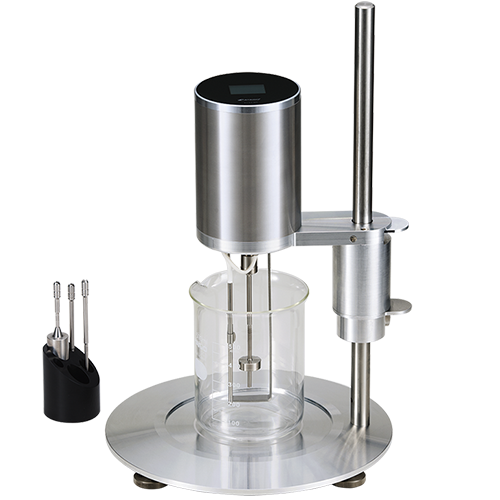
6 Points that Surpasses the Existing Digital Viscometer
Easy Operation
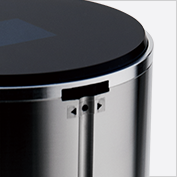
ATAGO’s VISCO ™ B offers a simple set up and all operations can be done by one dial button for measurements which allows anyone to easily assemble and use.
One Touch Spindle
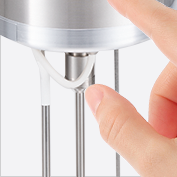
Compared to the left-handed screw type that are commonly used with traditional Type-B viscometers, a spindle for VISCO™ B can be installed by simple one touch.
Smooth Height Adjustment
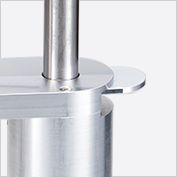
Many of the traditional Type-B viscometers that use left-hand screw requires to turn and twist screws to move it up and down causing tendonitis in some cases. With VISCO™ B, height can be adjusted simply by using a lever.
Digital Level Check
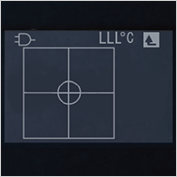
Traditional Type-B analog viscometers require visual check when leveling. VISCO™ B is digital and easily done.
Don’t let reference lines confuse you
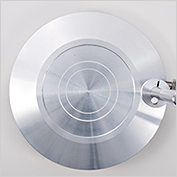
Where to place a beaker is important. VISCO™ B has easy to follow guideline that takes away the ambiguity.
Stylish design
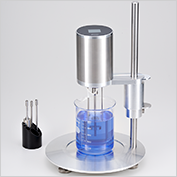
The VISCO™ B offers futuristic design that will brighten and bring fun to any measurement sites.
Function and Design
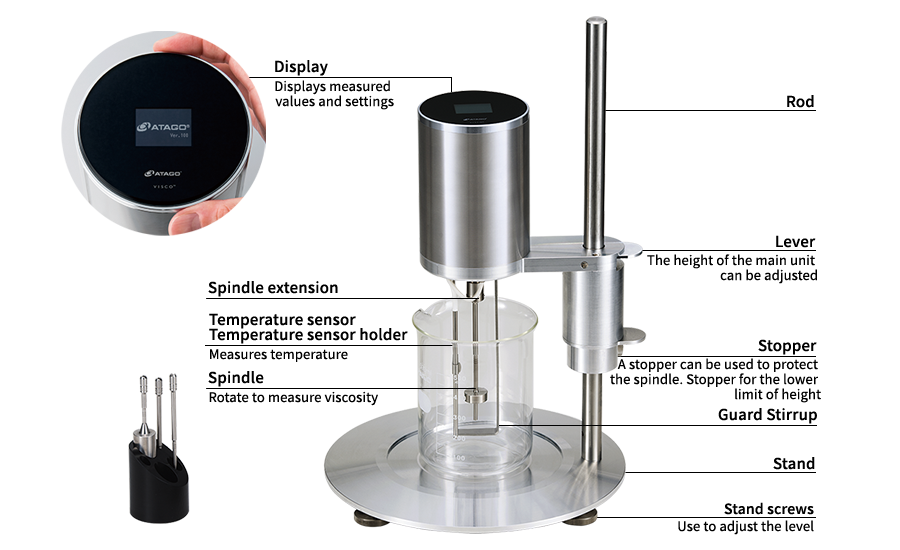
Technical Specifications
|
Model |
VISCO™ B (L) |
|
Cat. No. |
6840 |
|
Measurement item |
Viscosity (mPa・s/cP) |
|
Range |
Viscosity: 12~60,000,000mPa・S, 12~60,000,000cP |
|
Accuracy |
Viscosity: ±1% of Maximum Viscosity |
|
Power Supply |
• LR6 / AA alkaline batteries (x4) |
|
Computer Communication |
Output: USB - PC |
|
Dimensions & Weight |
Main unit: (W) 178 × (D) 86 × (H) 194mm, 1.2kg |
Calibration and Standard Solution
Calibration compares the true value and the value measured from the instrument. Calibration is an important task to ensure the reliability of the measurement results. Calibration is recommended when the measurement environment has changed drastically or when the measurement results are out of the norm. If you are considering routine calibration, we recommend that you decide the frequency based on the circumstance in which the instrument is used and past measurement results. ATAGO's viscometer VISCO™ provides the following standard solutions: The standard solutions are available in various viscosity. It is recommended to calibrate with a standard solution that is close to the viscosity of samples being measured.
VISCO™ standard solution
|
Part number |
Part name |
Contents |
|
RE-89013 |
Viscosity Standard LiquidJS20 |
100mL |
|
RE-89014 |
Viscosity Standard LiquidJS50 |
100mL |
|
RE-89015 |
Viscosity Standard LiquidJS100 |
100mL |
|
RE-89016 |
Viscosity Standard LiquidJS200 |
100mL |
|
RE-89017 |
Viscosity Standard LiquidJS500 |
100mL |
|
RE-89018 |
Viscosity Standard LiquidJS1000 |
100mL |
|
RE-89019 |
Viscosity Standard LiquidJS2000 |
100mL |
Accessories
Type and Measurement Principle of Viscometer
What is a Viscometer?
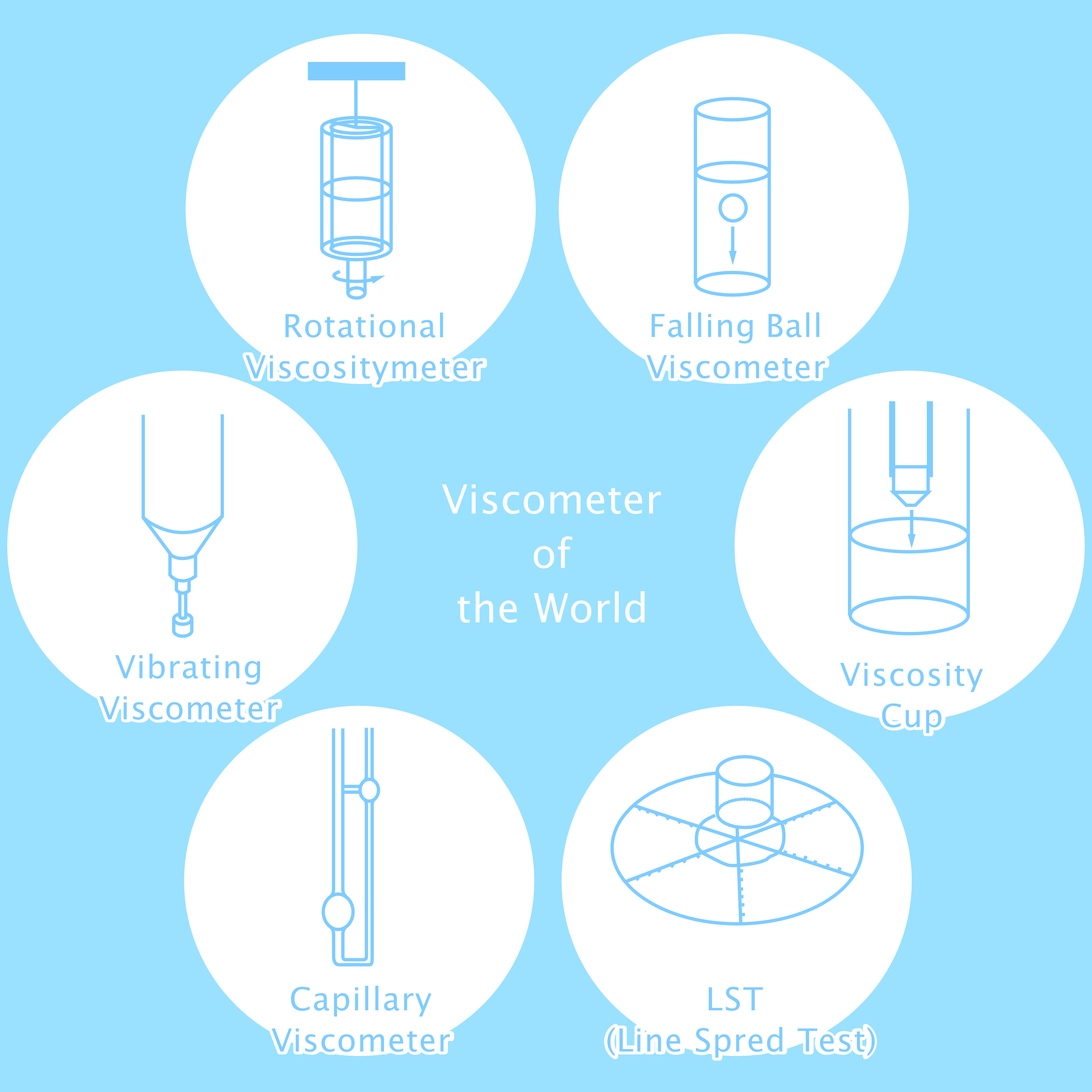
There are different types viscometers that uses various measurement methods. For example, in the Japanese Industrial Standard JIS Z 8803, viscometers are classified as follow:
There are also other measurement methods such as viscosity cups and Line Spread Tests (LST).
ATAGO's viscosity meter VISCO™ is measured on a principle called rotational viscosity.
Principle of Rotational Viscometer
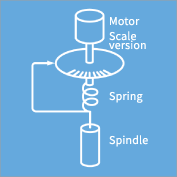
Rotational viscometer is one of the most common viscometers used. The structure is simple, easy to use, and the measurement range is wide and can be measured with high accuracy. When a cylindrical spindle is placed in the sample and rotated at a constant speed, the viscosity is determined by measuring the torque (shear stress) acting on the cylindrical surface. There are different types of spindles: coaxial double cylinder, single cylindrical, and cone and plate. The cone plate type can determine the flow characteristics of non-Newtonian fluids by changing the rotational speed.
Downloads
More detail about Muser Apac Sdn Bhd
 Malaysia
Malaysia